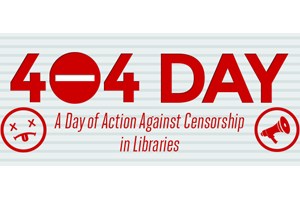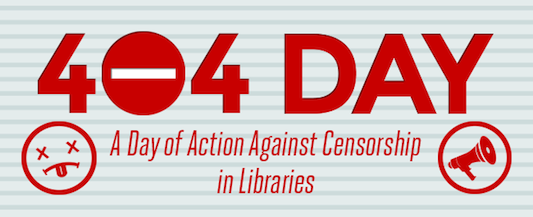
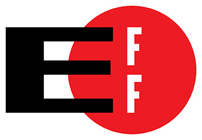 |
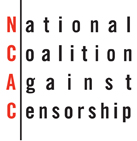 |
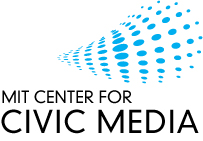 |
Mark your calendars! On April 4th NCAC will be celebrating 404 Day, a day dedicated to the issue of internet censorship in public schools and libraries. Along with 404 Day partners the Electronic Frontier Foundation (EFF) and the MIT Center for Civic Media, we are spreading the word and calling on You to share your stories!
Concerns over young people’s access to online pornography led to the Children Internet Protection Act (CIPA). CIPA compels schools and libraries who receive certain types of government funding to filter out content that might be “harmful to minors” on every computer. NCAC has long criticized filtering practices for being overbroad, discriminatory and for infringing on students’ free expression rights. As Deborah Caldwell-Stone of the ALA, an expert in library filtering practices, has pointed out, “some libraries are denying users access to websites that discuss Wicca and Native American spirituality; blacklisting websites that affirm the lesbian, gay, bisexual, and transgender (LGBT) communities while white-listing sites that advocate against gay rights and promote “ex-gay” ministries; and refusing to unblock webpages that deal with youth tobacco use, art galleries, blogs, and firearms.”
You can learn more about the issue by tuning in for a digital teach-in on April 4 at 12:00 p.m. PST/ 3:00 p.m. EST, featuring NCAC Board Member Chris Peterson of MIT’s Center for Civic Media, Sarah Houghton, blogger and Director of the San Rafael Public Library in Northern California and Caldwell-Stone. EFF’s April Glaser will moderate.
The teach-in will address the effects of CIPA, what websites are blacklisted and why, how librarians can educate their patrons about filters and how they can speak out against library censorship. It will also highlight the important contributions of initiatives like Chris Peterson’s Mapping Information Access Project, which seeks to discover filtering practices in schools and libraries through open records requests. The more we know about how filtering is used and the effects it has on students’ and citizens’ access to information, the better we can arm ourselves in the fight against internet censorship.
In addition to the teach-in, bloggers and librarians across the country are invited to write about their experiences with blocked websites, CIPA, and Internet filtering. EFF will link to and share blogposts written for 404 Day on its website and NCAC will help spread those voices around the web. What educational websites have been blocked from your view? How have you fought back against aggressive filtering in your community? If you plan to write a blogpost for 404 Day, e-mail april(at)eff(dot)org with the link to the post.
Students and adults alike need to be able to move around the internet and pursue educational or personal interests with ease of access. Filtering has played a mighty role in internet access in public institutions in the last decade. On 404 Day, we’re rallying librarians, students and the public to engage on the question of internet filtering, its effectiveness and the ways in which it inhibits speech.
Want to blog on April 4th for 404 Day? Email april(at)eff(dot)org to let us know.


